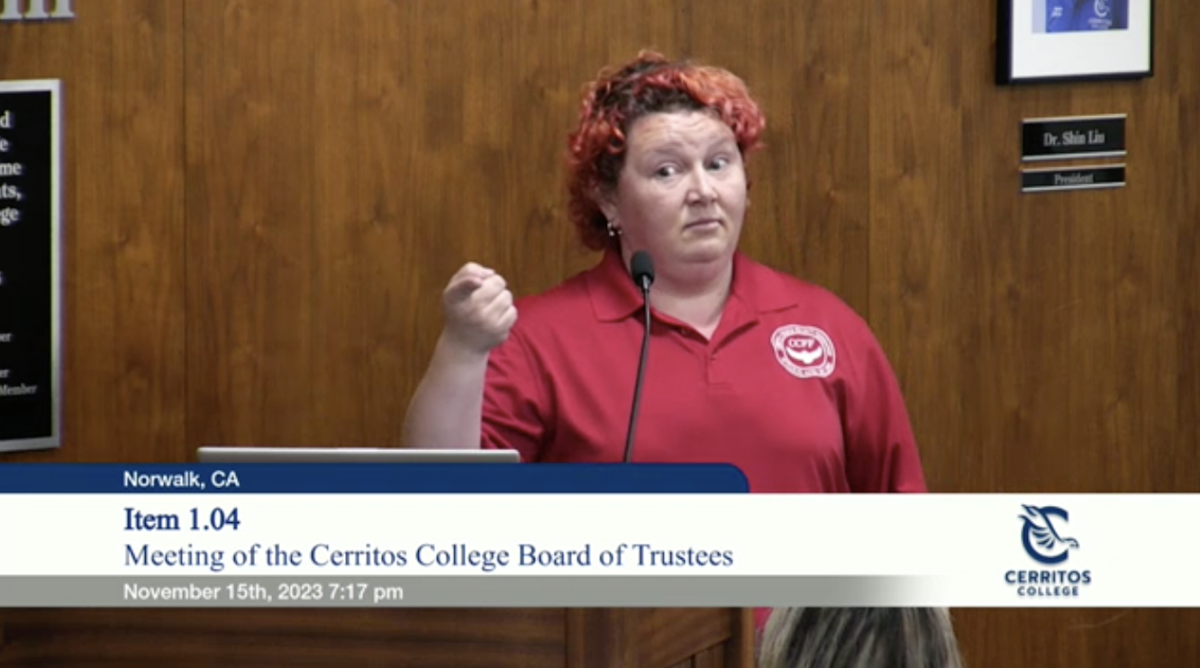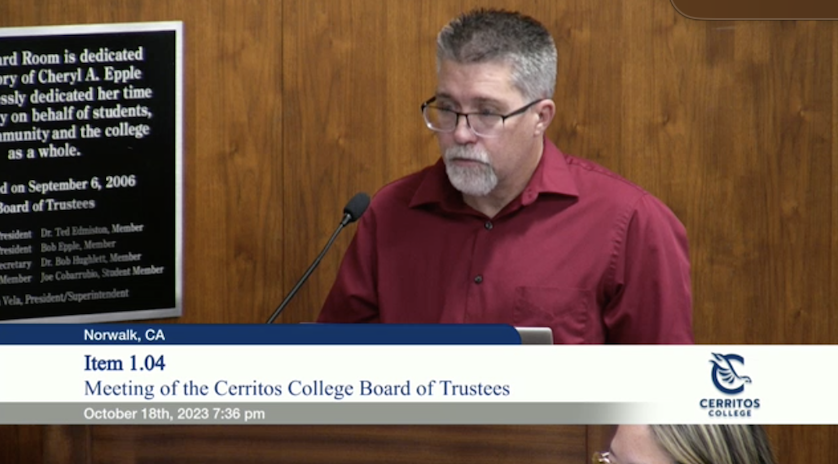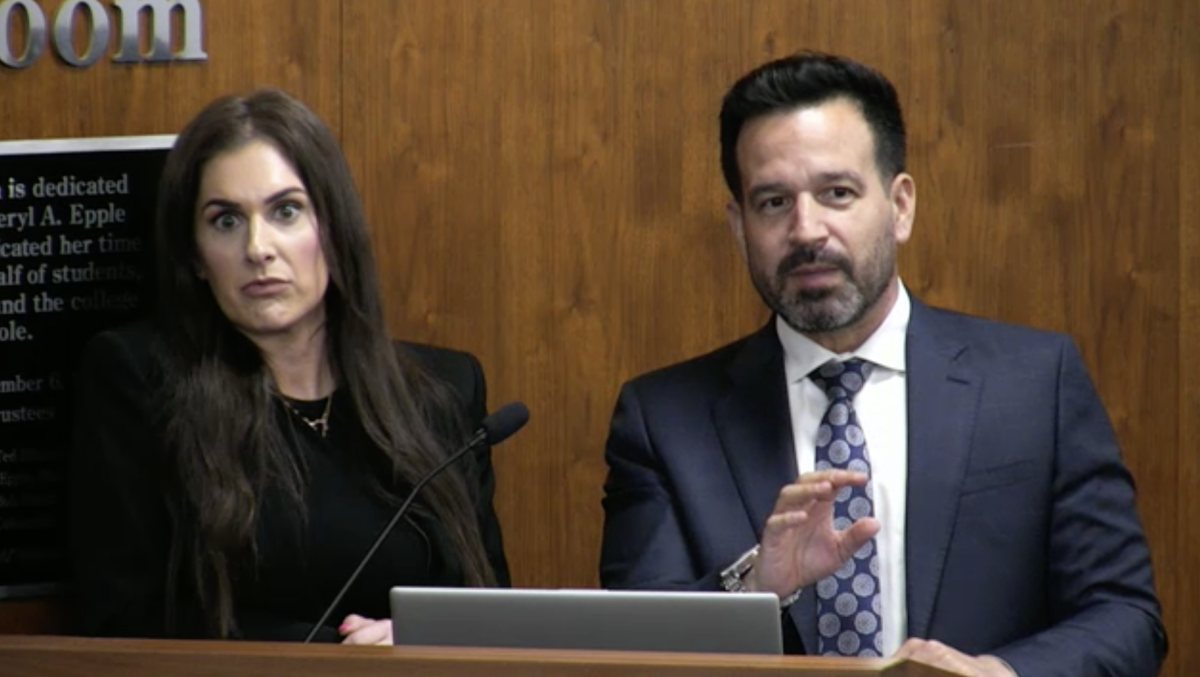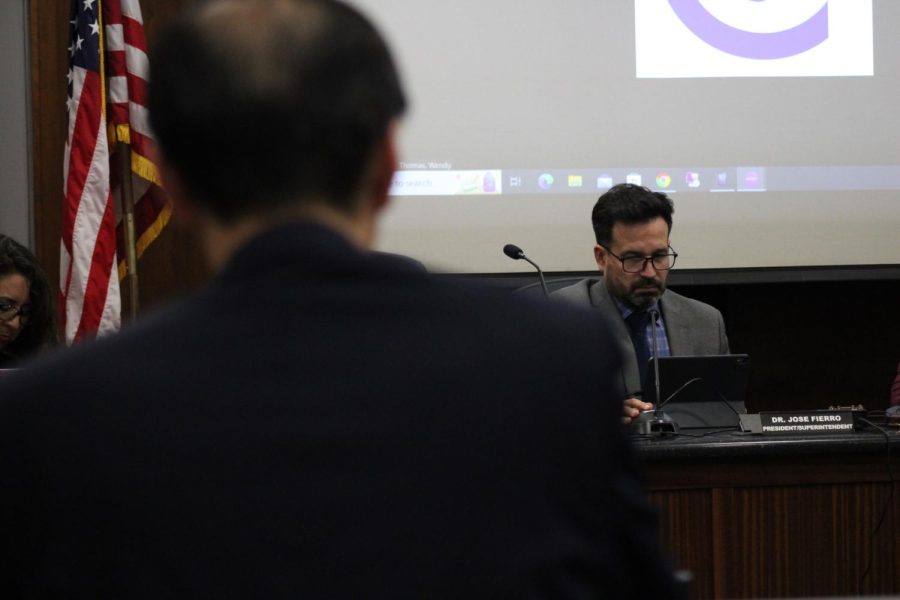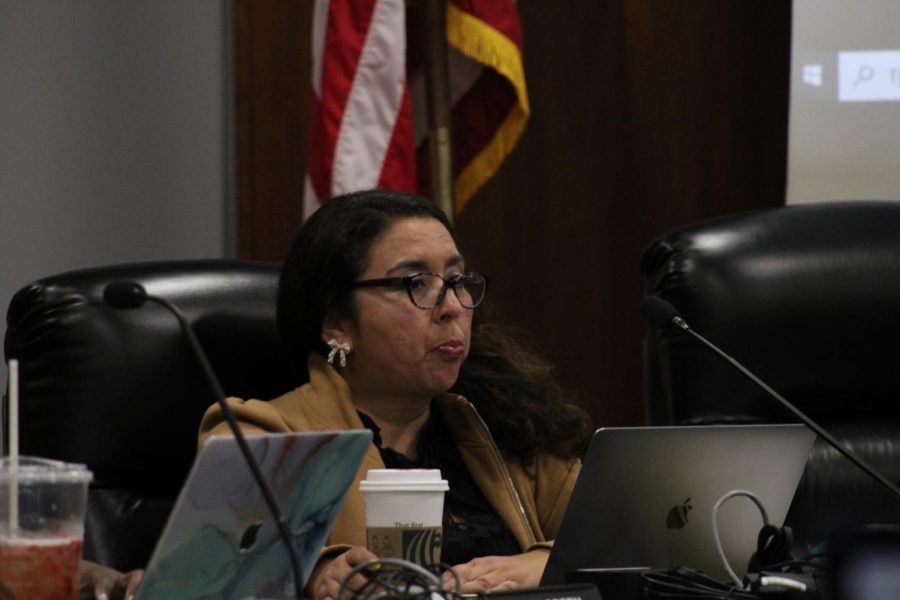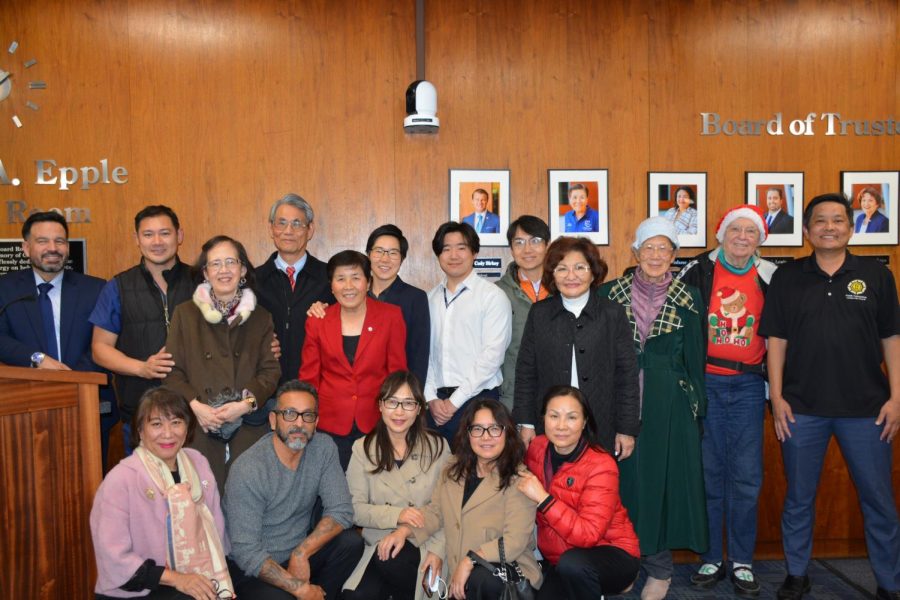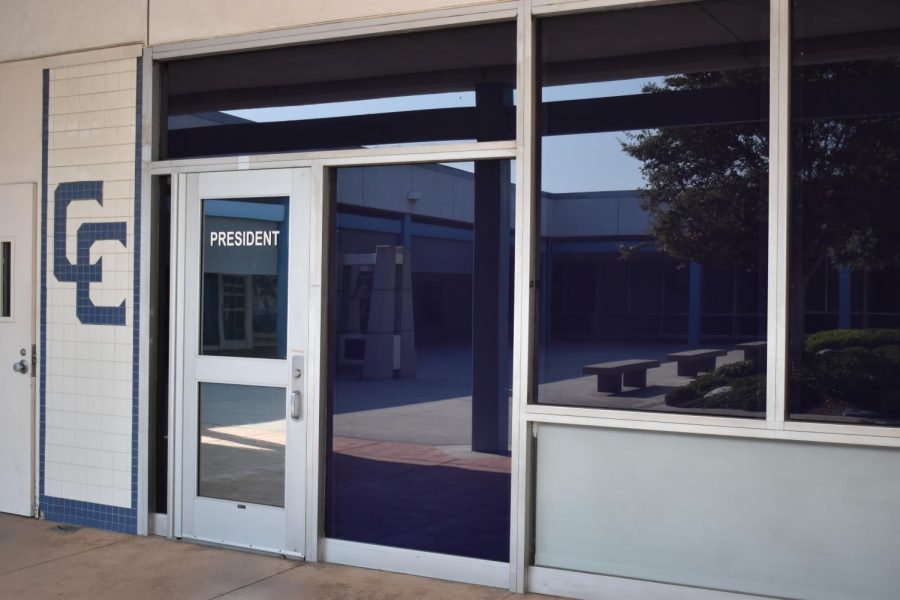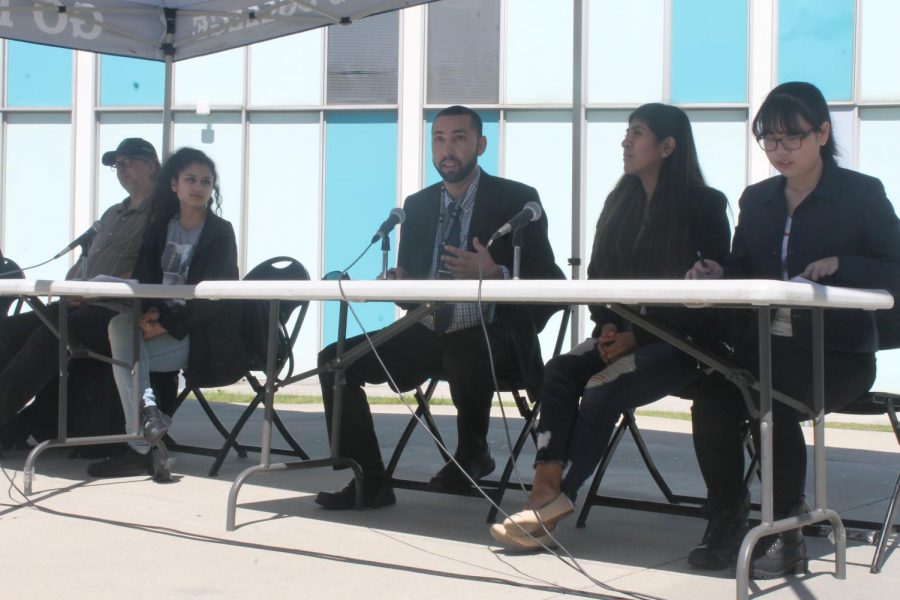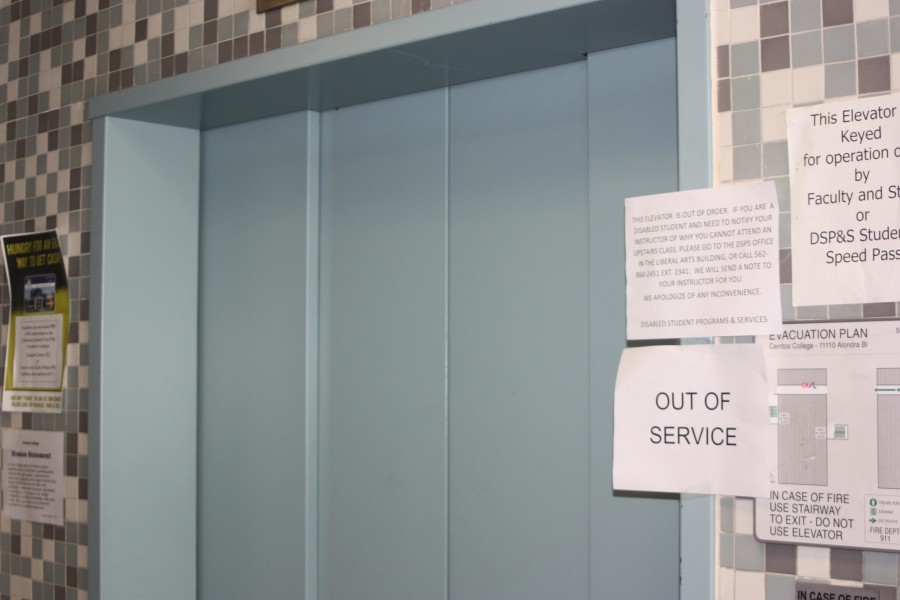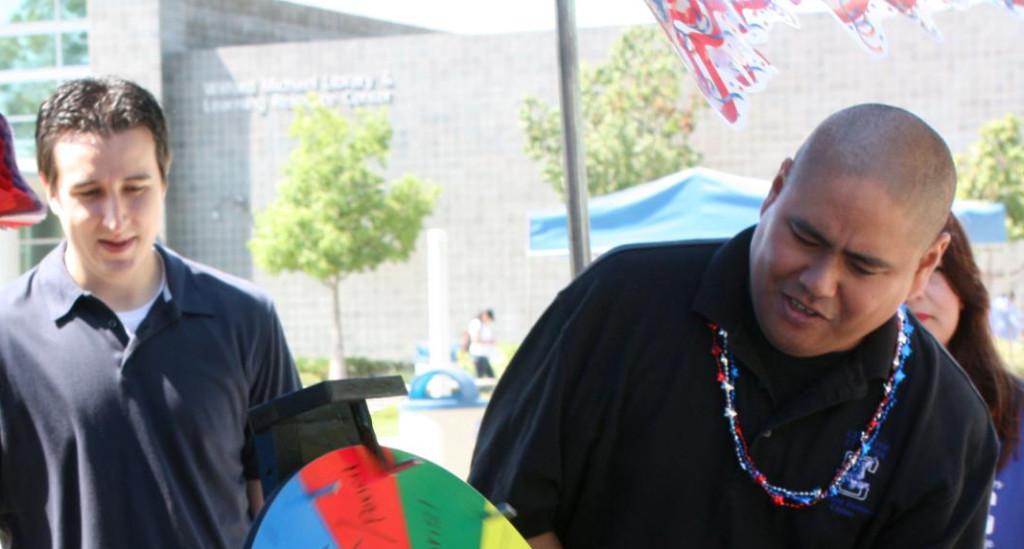The Cerritos College budget, student success, resources available to faculty, accreditation, and the welcoming of new staff for this semester were among the topics that faculty discussed during this year’s Convocation at Burnight Theater on Aug. 30.
David El Fattal, Vice President of Business Services, stated that the college is facing at least a $3.5 million deficit to as much as $7.5 million for the 2012-2013 school year.
Voting results in November will determine how deep Cerritos College’s deficit will go.
If voters pass Governor Jerry Brown’s Proposition 30 tax measure, the state government will withhold about 43 percent of federally allocated funds to Cerritos College, which would place the deficit at a lower figure.
If voters fail to pass the initiative, the state will withhold about 53 percent of funds resulting in a larger sum.
“Either way, it will be the worst it has ever been for higher education in California,” El Fattal said.
“The state economy has been imposing budget reductions on us for the last 10 years,” he added, “The state needs to rethink how it handles its budget.
“We are going to use some of our savings that we built up in preparation for it. We are still working through the process of what we can do to reduce operating costs.”
El Fattal explained the cuts will affect students as it has in the past, by causing fewer class sections each semester, but the school is working to keep cuts away from students.
“We’re having all groups involved in the discussion to determine how to keep the cuts furthest away from the students while keeping services for students to the greatest degree possible,” El Fattal said.
On a lighter note discussed at the convocation, student success at Cerritos College is doing well, according to Dean of Academic Success, Bryan Reece.
He stated that student retention is high and that Cerritos College is improving at a faster rate compared to most other community colleges in the state.
Reece shared the student success model which is made of seven goals, each with various objectives, that the school is implementing to improve student success.
“(Student Success) can be attributed to this model we are focusing on,” he said.
“We are trying to improve student engagement through programs like iFalcon and we are focusing on improving teaching with the Center For Teaching Excellence.”
“Everybody here wants our students to have a great academic experience. What’s been lacking for a long time is that we didn’t have a collective, organized plan for how we were going to do that. Once we were able as an organization to put a plan together that spoke to this then it was pretty easy for everyone to get on board and go in that direction. That’s what all of us came here to do,” Reece added.
The model sets standards and practices in areas involving students, faculty and staff, and administration and services. According to Reece, the model is still in draft form and has not yet been finalized.
“If we can get everyone moving in the same direction, we will get better student success results,” Reece said.
David Betancourt also introduced the Center For Teaching Excellence, which is a new resource available to support faculty members.
“The goal is to provide professional development opportunities and training for our faculty,” Betancourt, who will serve as the coordinator for CTX, said. “To me, that’s empowering.”
The center, which is located in Room 121 of the Learning Resource Center, will offer new programs, workshops, certificate and walk-in assistance for instructors.
Frank Mixson, faculty Co-chair and English instructor, also spoke on the school’s accreditation process and introduced a new method that would organize the process, making it more manageable.
New faculty and staff were also introduced and welcomed during the convocation.


